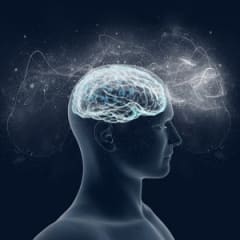Oncologists face several stressful and/or ethical issues in delivering cancer care. In their day-to-day practice they encounter dilemmas regarding diagnosis, extent of patient information, planning treatment, and follow up. These challenges call for a high degree of sensitivity and respect for both patients’ rights and choices and the laws of non-maleficence (no harm to the patient).
Detection and diagnosis of cancer
There are many screening and diagnostic tests used to detect cancer. False positives – positive results indicating cancer when there is actually no cancer – unnecessarily raise anxiety in patients and their families and may lead to further unnecessary testing and investigation. Advising patients and their families of detection of a genetic risk of cancer is another stressful situation that oncologists may find themselves in.
Extent of patient information
One of the most common responsibilities of an oncologist is presenting the cancer diagnosis to patients. This never gets easy. And while it is generally important that the patient knows everything about what they are facing, it is sometimes in their best interest, at least initially, to be shielded from the extent of spread of the cancer, especially if the physician believes that full disclosure could be detrimental to their emotional state and to their potential healing process. For the oncologist, this is a stressful decision that also has ethical implications.
Planning treatment
Some patients may not be willing to undergo specific kinds of treatment, despite their physician’s recommendation. For example, they may refuse chemotherapy, because of its often severe adverse effects of hair loss, nausea, and susceptibility to infections. In such cases, oncologists must strike a balance between respect for a patient’s wishes and autonomy and recommended medical advice.
Inclusion in clinical trials for novel therapies
Cancer clinical trials must involve cancer patients. New medical therapies and strategies, though, have not been proven to be safe and effective for humans. Patients must be made aware of the risks of participating in these trials. Even when a patient accepts these risks, the oncologist often bears the ethical burden of participation.
Alternative treatments
The use or choice of alternative therapies like homeopathy or herbal treatments may also need to be addressed by oncologists.
Withdrawal from active treatment
When to withdraw treatment is a large ethical issue. In most cases, the decision is made jointly by physician and patient, due to the non-responsiveness of the cancer to therapy. This course of action may lead to an alternative therapy or to palliative care. The process is a difficult one, with both emotional and ethical repercussions.
End of life issues
By their nature, ‘Do Not Resuscitate’ orders and euthanasia come with ethical concerns.
Other ethical issues
Cancer care also involves ethical issues related to a patient’s personal choices, religion, culture, socioeconomic status, and family life.
Related Careers

Psychologist
A psychologist is someone who studies mental processes and human behaviour by observing, interpreting, and recording how people relate to one another and the environment.

Social Worker
There are two main types of social workers: direct-service social workers, who help people solve and cope with problems in their everyday lives, and clinical social workers, who diagnose and treat mental, behavioural, and emotional issues.